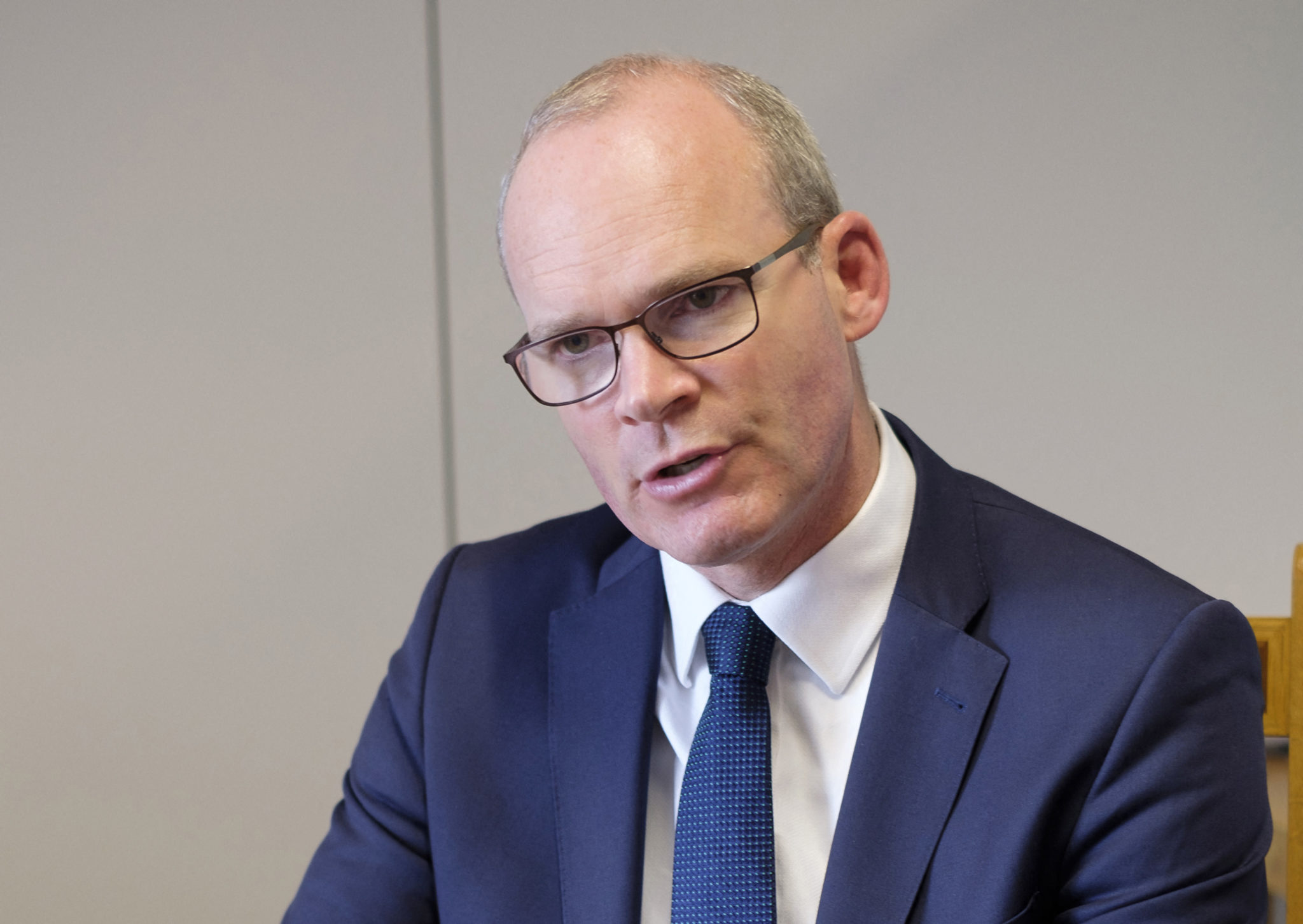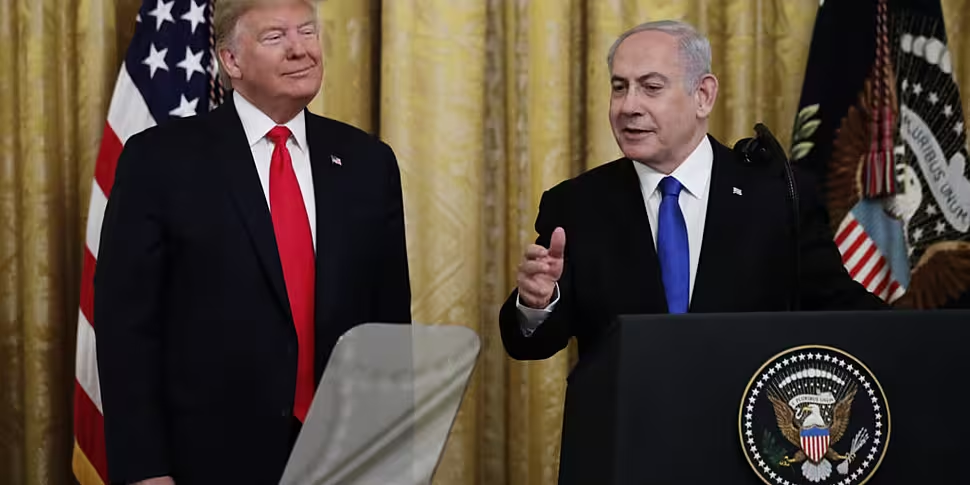The Tánaiste has expressed “grave concern” over the Middle East ‘peace plan’ announced by the US and Israel today.
Standing alongside the Israeli Prime Minister Benjamin Netanyahu at the White House this afternoon, President Donald Trump claimed the proposals offered a “win-win opportunity” for both sides to the protracted conflict.
There were no Palestinian representatives at the announcement – and Palestinian leaders have already rejected the plan as a “plot to liquidate the Palestinian cause.”
 file photo of the Tánaiste Simon Coveney | Image: Monasse Thierry/ANDBZ/ABACA/ABACA/PA Images
file photo of the Tánaiste Simon Coveney | Image: Monasse Thierry/ANDBZ/ABACA/ABACA/PA ImagesIn a statement this evening, the Tánaiste Simon Coveney said Ireland would be willing to support any plan that respected the aim for a two-state solution to the conflict and provided a basis for talks on meeting the “aspirations of both peoples.”
“We need to see the details and assess the full implications of the US initiative, but from what I have heard so far, the proposed plan does not meet this threshold,” he said.
“A successful resolution of the conflict can only be reached if both parties are included on an equal basis and can work together for an agreed outcome.
“No solution can be imposed and no unilateral moves should take place.”
Palestinian rights
Palestinian Prime Minister Muhammad Shtayyeh said the plan violates international law and "gives Israel everything it wants at the expense of the national rights of the Palestinian people."
He said the plan fails to return lands occupied by Israel to the Palestinian people and fails to recognise the 1967 borders.
Israel captured East Jerusalem in 1967 and annexed it - but that move was not recognised internationally.
In 2016, the UN Security Council reaffirmed that Israel’s establishment of settlements in Palestinian territory occupied since 1967 was a “flagrant violation under international law."
Mr Shtayyeh also took aim at the plan to hand Jerusalem to Israel as its capital city and warned that the plan attempts to cut international aid to Palestinian.
“It is nothing but a plan to liquidate the Palestinian cause and therefore we reject it and call on the international community not to be a partner in it because it contradicts with the basics of international law and the rights of the Palestinian people,” he said.
An official with the ruling Hamas group in Gaza said the plan was “nonsense.”
Two-state solution
President Trump claimed the plan offered a “realistic” two-state solution; however, there was confusion as he appeared to promise that Jerusalem would be Israel’s “undivided capital” while also claiming that it would “provide a Palestinian capital in East Jerusalem where America will proudly open an embassy.”
The Trump administration has promised a $50bn (€45.40bn) investment plan for the Palestinian territories; however, it has said the fund will only be released in Palestine accepts the political plan announced today.
The plan would see a future Palestinian state made up of the West Bank and Gaza, connected by a combination of roads and tunnels above ground.
It would recognise Israeli settlements on West Bank in return for a four-year freeze on settlements while Palestinian statehood was negotiated.
"Deeply concerned"
Meanwhile, Mr Coveney said he was "deeply concerned" about Mr Netanyahu's threat to extend Israeli sovereignty over the Jordan Valley and settlement in the West Bank.
"Let me be clear - annexation of territory by force is prohibited under international law, including by the UN Charter," he said.
He said such a move would be a breach of the Oslo accords which both parties signed and the internationally recognised commitment to an agreed solution between the parties.
"We will study the plan in more detail but our initial response is one of grave concern that it fails to achieve the balance and equality of esteem necessary to gain the support of both sides to the conflict and the international community," he said.









